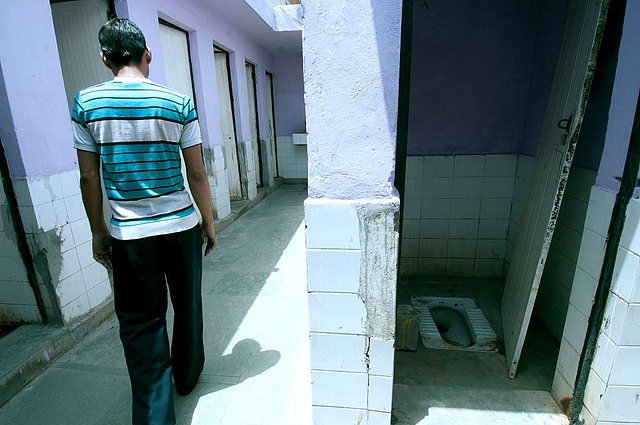
‘Refusal’ To Change: In Northern India, Toilet Ownership Increases, But Open Defecation Still Rampant, Says Study
A research study conducted to find out the impact of the Swachh Bharat Mission in the rural regions of four northern states of India has revealed interesting insights.
The survey was conducted by RICE (Research Institute for Compassionate Economics) and Accountability Initiative of the Centre for Policy Research, in Bihar, Madhya Pradesh, Rajasthan and Uttar Pradesh. The study covered 9,812 people across the aforementioned states.
The rate of open defecation has reduced and the ownership of toilets has increased.
Yet, the number of people who own toilets and still defecate in the open has remained the same between 2014 and 2018.
The number of toilets constructed has increased, but the underlying factor is the behavioural change, which has not happened.
While an improvement over the earlier 70 per cent figure, about 44 per cent people over two years old in rural Bihar, Madhya Pradesh, Rajasthan, and Uttar Pradesh still defecate in the open.
The mission aims to end open defecation by 2 October this year. According to data, Bihar has achieved 98.97 per cent coverage of toilets and in UP’s case, it is 100 per cent. But these states are still not free of open defecation.
The Hindu cited excerpts from the working paper that states, “We find that nearly the entire change in open defecation between 2014 and 2018 comes from increases in latrine ownership, rather than from changes in behaviour. This finding is consistent with our qualitative interviews, which found that local officials were far more likely to stress latrine construction as a priority of the SBM than they were to stress use of latrines.”